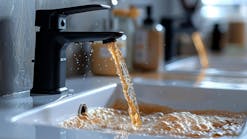It’s been yet another challenging year for the water quality industry. As the economy and housing market struggle down the long road to recovery, a host of other factors, from government regulations to business competition, continue to affect companies. As always, however, industry members are working hard to tackle the issues and improve their businesses.
This fall, Water Quality Products conducted its seventh annual State of the Industry survey to receive readers’ input on how their businesses are faring and what to expect in 2014.
Although the economy is an ongoing worry, many respondents had positive reports about the past year. More than 40% rated 2013 as a “good” business year, while 20% said it was “very good.” As for the future, respondents are expecting a positive shift: Nearly 40% expect 2014 to be “good,” and 38% say it will be “very good.”
Almost 50% of respondents said they are planning to expand their businesses over the next two years by introducing new products, expanding or adding locations, or hiring new staff.
Finding these new employees may be easier said than done, though: When asked what will challenge their businesses the most over the next two years, many respondents cited staffing as the biggest hurdle. Their comments indicated that “experienced,” “knowledgeable,” “qualified” and “skilled” employees are in short supply. This problem will be further compounded as many in the industry reach retirement age: More than 45% of survey respondents are 60 or older, with nearly 40% more between 50 and 59 years old.
Even when quality employees can be found, business owners now also have the complications of the Affordable Care Act (better known as Obamacare) to worry about. The new health care law, as well as general health insurance issues, came in a close second to staffing as the biggest upcoming business challenge, and after the HealthCare.gov website’s rocky start this fall, it is easy to see why the industry is concerned.
Another top challenge listed was business competition, with many respondents noting that unethical business practices and inferior products have the potential to cast a negative view on the entire industry. Unqualified personnel “turn the business into one perceived to be a consumer rip-off,” wrote one respondent. Another commented that “there are too many bad manufacturers, and it is expensive to find out which ones are good.”
Despite these challenges and others that loom large as we approach 2014, readers showed that they are looking toward future improvements and innovations. Topics like green technologies, alternative softening systems and water reuse were rated as the most important in coming years, and this spirit of innovation and willingness to embrace the new will help move the industry forward.
Download: Here



